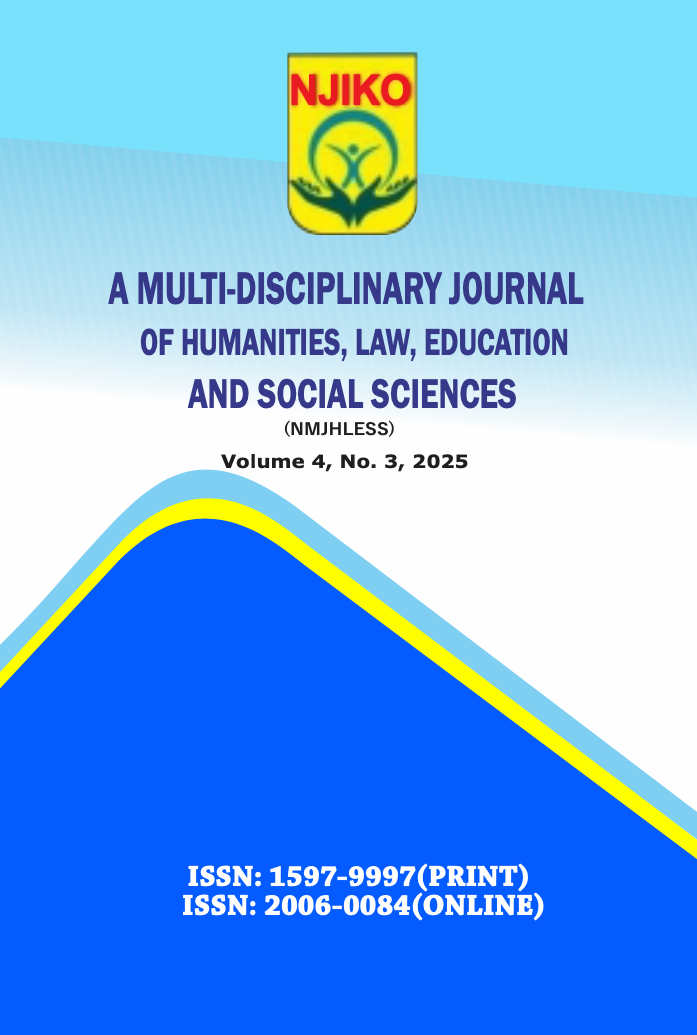HUMANISM AND ITS VARIANTS: EXAMINING THE PHILOSOPHICAL FOUNDATIONS FOR DEMOCRATIC EDUCATION IN NIGERIA
摘要
This study examines humanism and its various strands classical, secular, religious, and integral as philosophical foundations for democratic education in Nigeria. It assess how each variant contributes to a vision of education that respects human dignity, promotes critical thinking, and fosters participatory citizenship. Drawing on philosophical analysis and documentary review, the study evaluates the extent to which humanist ideals such as freedom, reason, responsibility, and the common good can inform educational practices in a diverse and pluralistic society. The paper highlights Jacques Maritain's notion of integral humanism as particularly relevant to Nigeria's socio-political context, given its emphasis on the full development of the human person within a community and in relation to transcendent values. The research finds that while secular and liberal models of humanism support democratic engagement through autonomy and civic education, religious and integral approaches offer a more holistic approach that unites moral, spiritual, and intellectual development. The paper argues that integrating these variants within Nigerian educational policy could strengthen democratic culture, reduce ethnoreligious tensions, and empower learners to become agents of social transformation. Ultimately, the study underscores the need for a philosophically grounded, context-sensitive model of democratic education that balances individual rights with communal responsibilities.


